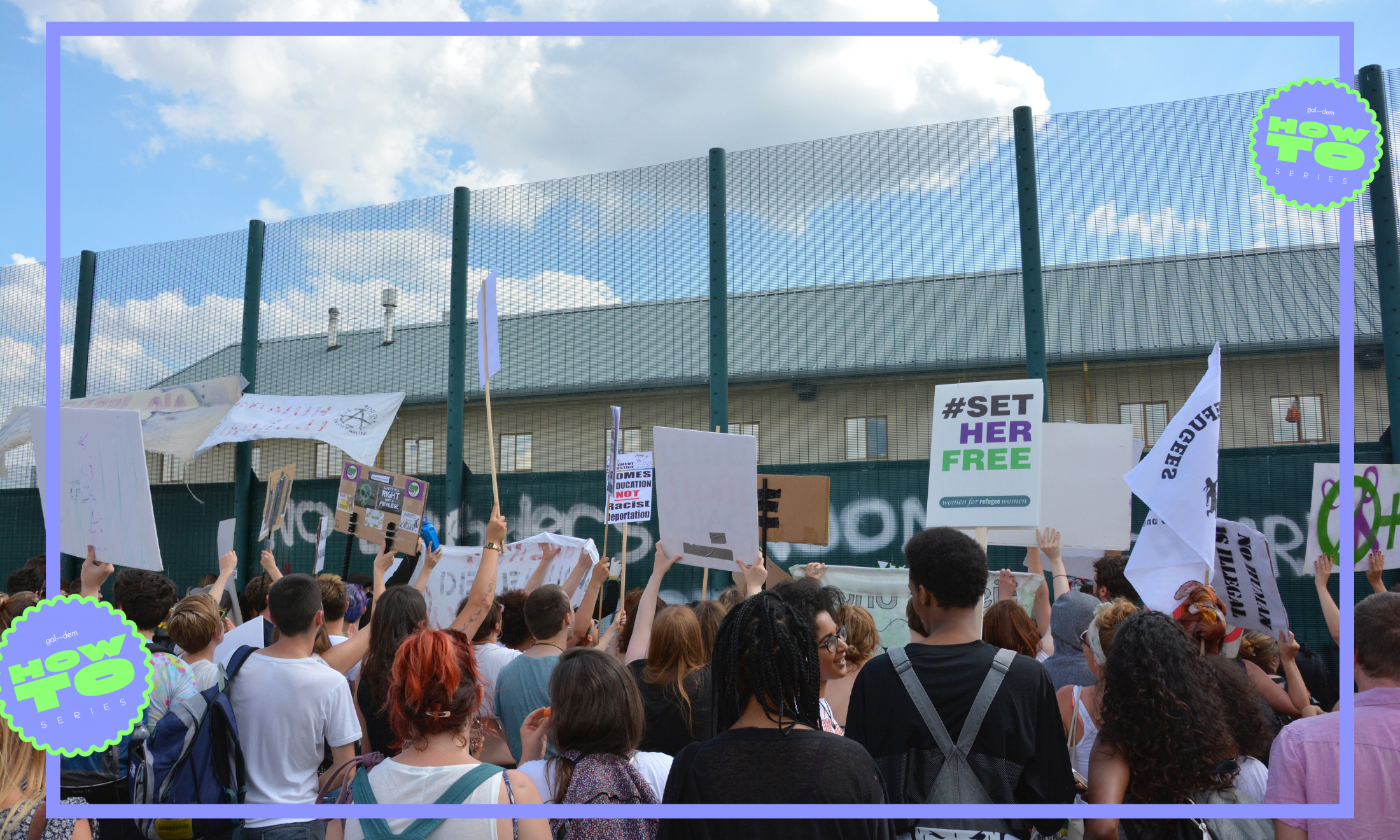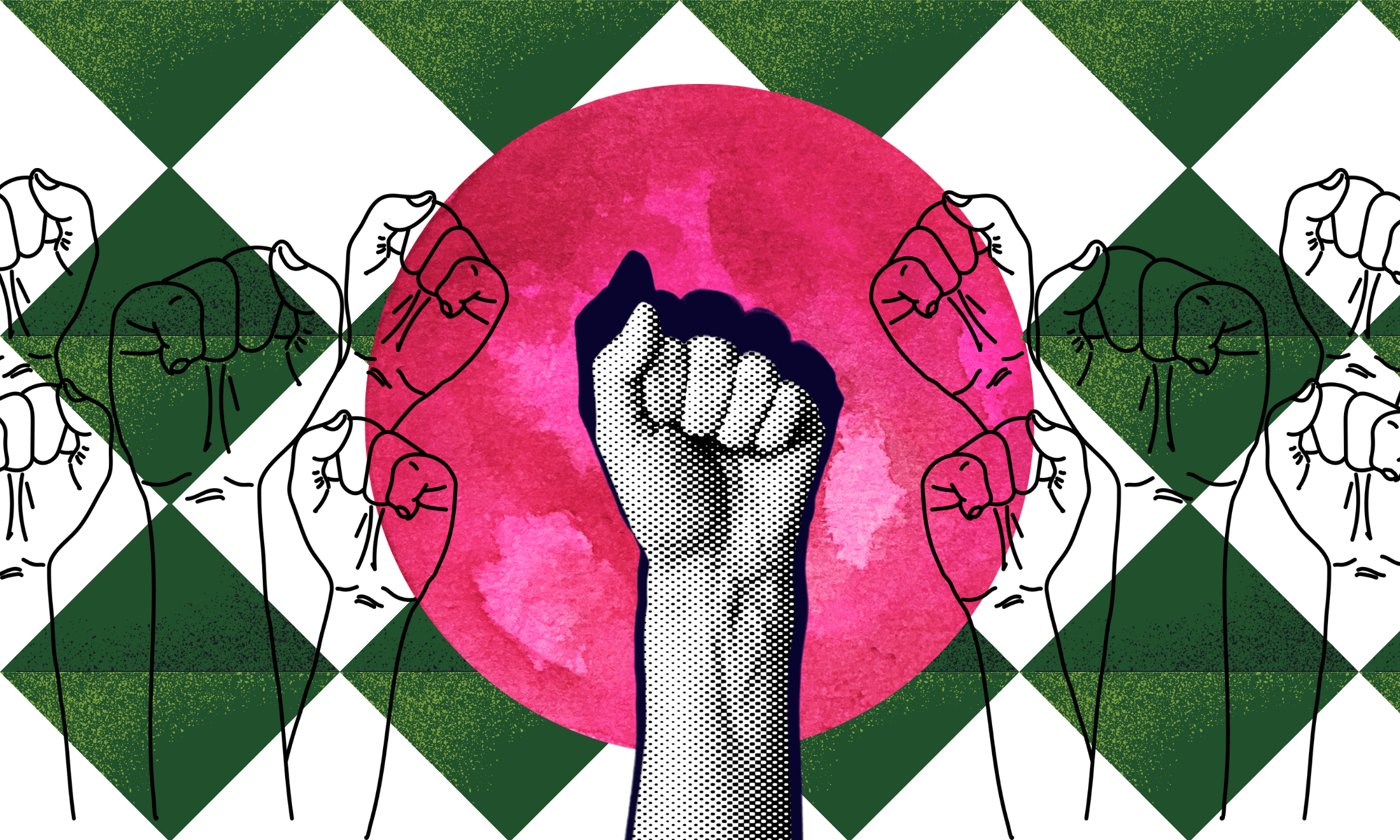
Today, Movement for Justice (MFJ) joined NGO groups, including Women for Refugee Women (WRW) and Sisters Uncut, in a demonstration outside Yarl’s Wood Detention Centre.
There has been a wider call for the UK to “take in” more refugees, as if the UK is a shining beacon of hope, and those seeking asylum will be protected here. But what actually happens when they arrive? Many women seeking asylum in the UK, who have fled persecution on account of their gender or political affiliation, are treated with blatant disbelief, racism and sexism.
What happens before women are detained?
There are extensive checks and balances imposed upon asylum-seeking women who make it to the UK. However, the legal framework for assessing asylum doesn’t place officials under nearly enough scrutiny. The staggeringly-high overturn rate on appeals to contest initial rejections highlights this.
The process of seeking asylum, and the ordeal of what can only be described as interrogation, despite the official label of ‘investigations’, is severely traumatic. The first step is a series of interviews: the screening and the substantive, the second of which can last for hours. Many women have described this process as an opportunity for officials to question them, with the intention of tripping them up. If a date, or a memory, contradicts an earlier account, this can have severely damaging consequences for asylum claims.
A significant proportion of these women have been subject to forms of sexual violence. So, having to regurgitate their abuse and trauma is a complicated and stressful process. There may be all sorts of reasons as to why dates and times get mixed up: largely due to the cross-examination technique used; the fact that human memories are fallible; and that victims of abuse may have blocked out certain memories if they have occurred over a prolonged period of time. As UK Border Agency (UKBA) officials have been known to harbour racialised and gendered stereotypes, refugee women may not feel comfortable disclosing all of the traumatic events which have occurred, immediately. When UKBA staff lack the cultural knowledge and empathy needed to understand the experiences of refugee women, how can they possibly protect them?
Detention
Following on from the substantive interview, asylum seekers may be held in detention centres such as Yarl’s Wood, while a decision about their claim is made; this is exactly what politicians and advocacy groups are campaigning against today.
These detention centre, are dark, damp and have extremely high rates of depression and suicide attempts. They are not centres; these women are being held in prisons. Through detaining women in centres like these, the government are essentially saying that these women are suspects, rather than victims. Detention is supposed to be used as a means to an end; women who have suffered forms of sexual violence, with consequential health complications or pregnancies should not be held in such centres. However, research carried out by organisations such as WRW has been unequivocal in showing that women in each of these categories are, in fact, being detained across the UK.
Within Yarl’s Wood alone, there have been numerous scandals, allegations of sexual abuse, and verbal assault faced by these women. The video below captures women formerly held in Yarl’s Wood disclosing their horrific ordeals, including how “four men watched me while I was naked”. The Chief Inspector of Police has labelled it as “a place of national concern”. Yet, Yarl’s Wood remains open.
In centres such as Yarl’s Wood, women do not know how long they will be held for. They count up the days, rather than count down, and many feel as though they are treated worse than criminals. The length of time which women may be held in detention, is wide-ranging. At the recent parliamentary debate on Immigration Detention in September, I was shocked to hear, through the All Party Parliamentary Groups on Refugees and Migration (APPG), that one woman had been held for five years.
The use of indefinite detention is inhumane and ineffective and the United Nations Refugee Agency (UNHCR) has called for an end to this. Organisations, such as Liberty, have also been calling for a 28-day limit, following the examples of countries like Sweden.
“Liberty believes that immigration detention should only be used as an extreme last resort, and for very time-limited periods, where it can be independently shown to be necessary. Immigration detention should never be used simply for administrative convenience.” – Liberty website
Political response
The recent parliamentary debate within Yarl’s Wood was an exciting moment. Both the political left and right recognised the need for urgent reform of the detention system. Their discussion centred around the APPG’s Inquiry into the Use of Immigration Detention in the UK. This report provided results, similar to those gathered by smaller-scale NGOs, into the ineffective and expensive nature of detaining individuals, who are more often than not released back into the UK and not deported.
The main recommendations were that a 28-day detention limit should be implemented. On the basis that: community resolutions, as opposed to detention and enforcement would be more effective; detention conditions often reflect that of high-security prison; there are significant detrimental mental health effects, which being held for a long period of time can induce; women who are victims of sexual violence should not be held in detention; individuals are often unable to access sufficient legal support; and that financial savings would be made if detention was used less frequently.
“Indefinite detention of people who have committed no crime – and without even any independent review – is wrong. It can be deeply scarring – especially for asylum seekers who have already suffered abuse. And it is extremely expensive for taxpayers. No other western nation does it. We don’t need to either.” Yvette Cooper
The level of agreement which I witnessed within this parliamentary debate was astounding. It is rare that a parliamentary debate brings together MPs from all sides of the political spectrum. MPs from the left and right were all either calling for an end to the detention, or at least for the implementation of a time limit.
After hours of shared opinions; experiences from asylum seekers in MPs constituencies; MPs shouting out organisations such as WRW; and MPs using the #SetHerFree slogan, the viewing galleries were hopeful. I was sitting with refugee women, who had been through the agonising process of detention, and we could barely control our whoops and cheers. But, when the Immigration Secretary brought the debate to a close, he seemed more concerned with time-keeping, than acknowledging it was time for a change.
With scandals, reports and the unification of MPs from all political persuasions, when will the government look to reform our current system? It is time that the UK adopts an ethical asylum system, in which the most vulnerable within society are protected and treated with respect and dignity. I’m hoping that today’s protest will be the last of its kind.









